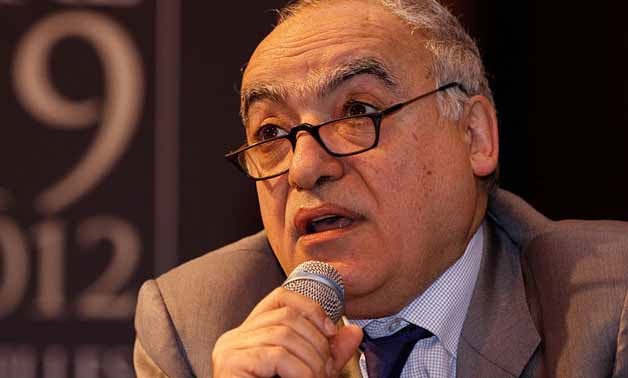
Ghassan Salama- CC via Wikimedia
TUNIS - 20 September 2017: The United Nations is seeking to marshal international support this week for a new push to break a political stalemate in Libya and end the turmoil that followed the country's 2011 uprising.
The world body's Libya envoy, Ghassan Salame, is expected to set out an "action plan" on the sidelines of the U.N. General Assembly in New York on Wednesday that will propose amending a 2015 peace deal that quickly stalled.
The U.N.-backed Government of National Accord (GNA) set up under the December 2015 deal has never fully established itself in Tripoli, leaving Libya with three competing governments aligned with rival armed alliances.
Hamstrung by internal splits in its nine-member leadership, or Presidency Council, the GNA has been unable to tackle Libya's acute liquidity crisis, save collapsing public services or bring powerful militias to heel.
Though oil production has partially recovered and local forces ousted Islamic State from their North African stronghold of Sirte last year, security vacuums in central and southern Libya persist and armed groups control the informal economy.
Eastern-based commander Khalifa Haftar has gradually strengthened his position on the ground, with support from Egypt and the United Arab Emirates.
Lauded by allies for his anti-Islamist stance, Haftar is accused by foes of seeking to reimpose military rule that they fought to overthrow when they toppled veteran ruler Muammar Gaddafi six years ago.
"The most important thing is to convince Haftar that a peaceful solution is better than a military one," said Karim Mezran of the Atlantic Council, a U.S. think-tank.
"You have to convince the Egyptians and the Emiratis who are his main supporters to reduce that support."
FRAGMENTATION
Salame, who took up his post in August, is expected to propose reducing the unwieldy GNA Presidency Council to three members and it would then nominate a new transitional government, diplomats and analysts say.
But securing changes to the 2015 deal would need the approval of a barely functional eastern-based parliament.
The European Union and the United States have imposed sanctions on the head of that parliament, Agila Saleh, accusing him of stalling Libya's political process.
A delegation from the eastern parliament is expected to start negotiating with members of its Tripoli-based rival assembly. They are under pressure to reach an agreement before Dec. 17, when opponents of the 2015 deal say it expires.
Salame must also balance calls for new elections with the need to prepare a legal framework in which they can take place, diplomats say.
Before elections "you need a timetable to do the necessary preparation ... but at the same time you need a government that can govern and unify the political, economic and social and military institutions of the country and deliver services in that interim period," said a senior Western diplomat.
Some armed groups have cemented their positions since 2015, while political factions across Libya have become even more splintered.
"Now the problem is that those factions have fragmented internally," said Claudia Gazzini, a senior analyst for the International Crisis Group. "It's even more difficult to solicit representative views."
Elections would require an electoral law, and possibly a referendum to endorse a new constitution. In 2014, elections were challenged, leading to a major escalation of conflict and the division of Libya's key institutions.
"Of course it's not going to be easy, and once

Comments
Leave a Comment